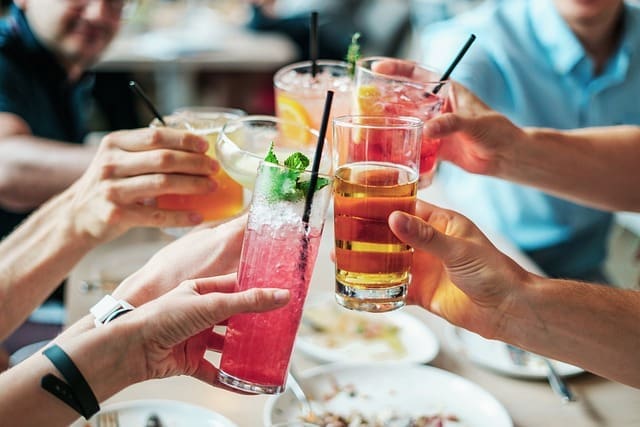Alcohol is a big part of many of our lives. It’s there with the highs as we clink our glasses in celebration. It’s also there with the lows, often slumped over a bar or sat on the sofa after difficult news. It can also be the creator of both, particularly when it comes to the lows.
Yes, alcohol has a bit of a habit of making us argue with one another. And it’s becoming more and more of a problem. Studies have shown, for example, that men with alcohol problems are six or seven times more likely to be involved in domestic abuse against women than others, which is catastrophic, especially as more and more people are starting to suffer from addiction.
For those who are struggling, it’s more important than ever to seek out help, not just to avoid arguments and the harm they cause to others but the harm they cause to ourselves, too. Alcohol rehab is more accessible and affordable than ever before, so seek help if you need it.
To do that, it may also be worth understanding exactly why it causes increases in arguments and abuse towards others…
Impaired judgment
First and foremost, there’s no doubt that alcohol impairs our judgment significantly, especially the more we drink. That isn’t anything new, nor is it something we don’t know. However, we’re often not aware of it when we are under the influence, believing we’re actually being more understanding or more accurate with the truth. But it’s this that can turn minor disagreements into major disputes very quickly indeed.
That judgment can also alter our perception of reality, encouraging us to make jokes or comments that are entirely inappropriate and could quite easily offend other people.
Miscommunication
That’s commonly the case with simple miscommunications. We’re not as good talkers when drunk and have the distinct ability to put our foot in it without necessarily meaning to. Combined with impaired judgment, it’s a recipe for disaster.
Emotional amplification
Due to the cognitive alterations alcohol causes, it heightens our emotional state. Sometimes, that can be a good thing, making celebrations even more joyous. However, it also heightens the risk of emotional volatility and will also heighten any negative feelings.
That can cause really distressing arguments and often unveils a number of unresolved issues too that have been left festering.
Unresolved issues
Yes, with arguments escalating quickly and moving at 100mph, unresolved issues come into play, and what was a minor disagreement about sausage rolls into a full-blown argument about the state of a relationship.
The relaxed state that alcohol often puts people in May emboldens individuals to address long-standing grievances that have been simmering. And while they probably do need to be addressed, while under the influence of alcohol isn’t that time.
Reduced inhibitions
Finally, alcohol is proven to lower our inhibitions, which can, of course, foster a more open attitude. This can be problematic in a number of ways. It can switch off our filter and, in turn, cause arguments.
Alongside this, it may cause you to commit to actions you would otherwise not, such as having affairs, getting into fights, and so on, which are going to lead to arguments in both the short and long term. In fact, they can be completely life-changing.
Of course, the simple answer is to give up alcohol. But it’s not quite that easy. It can be difficult to do, or you may not want to, but ultimately, managing consumption can be the best method for avoiding those drunken rows and spoiling what had been a perfectly good night.
Featured Image by bridgesward from Pixabay




